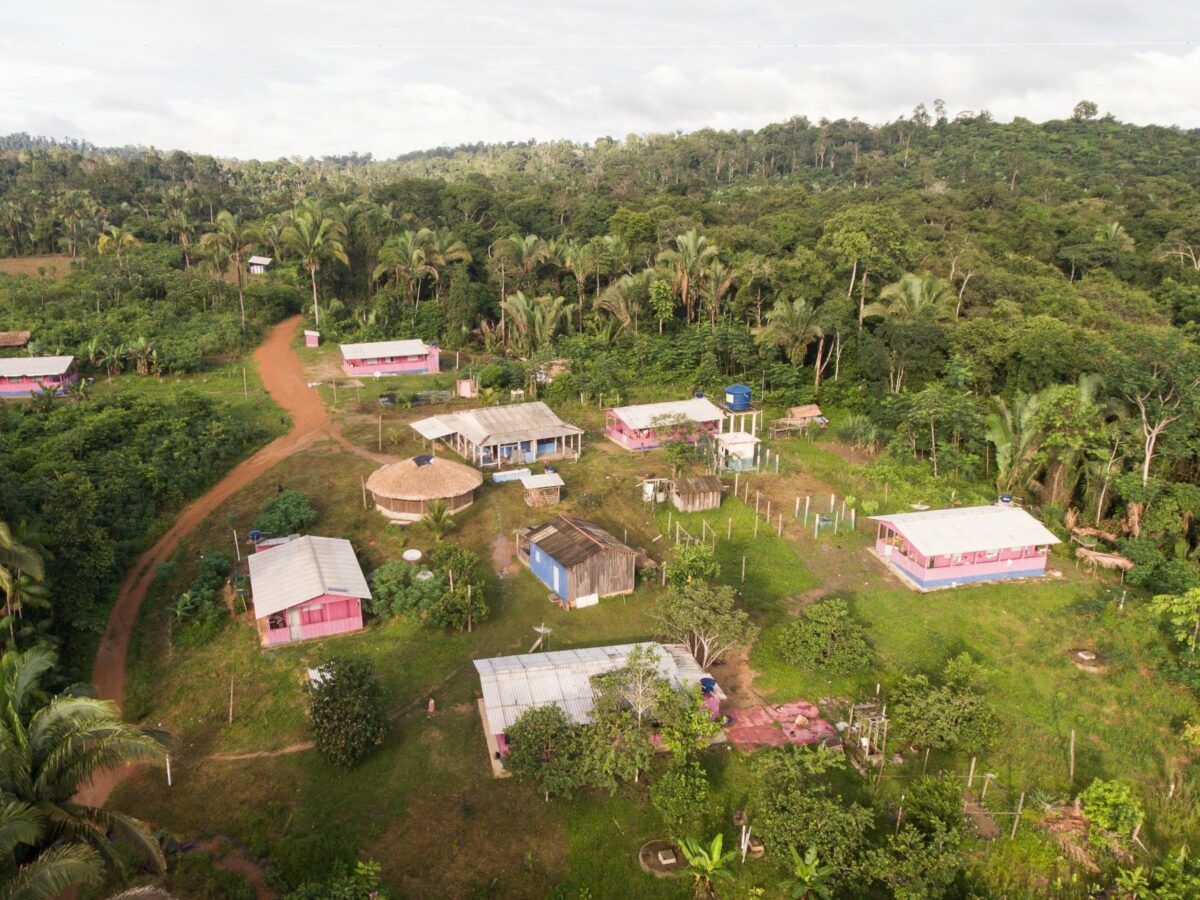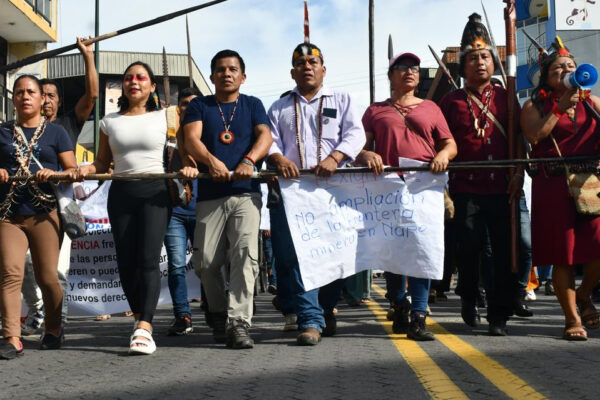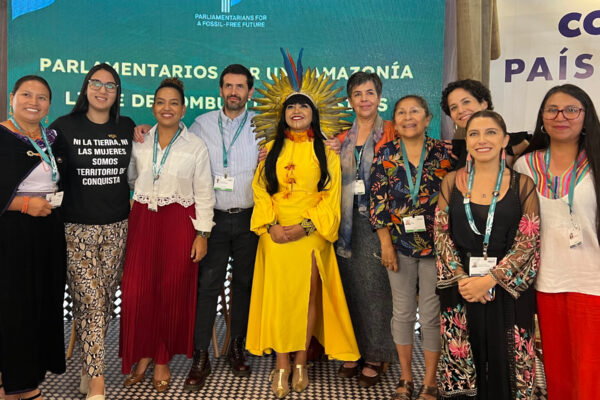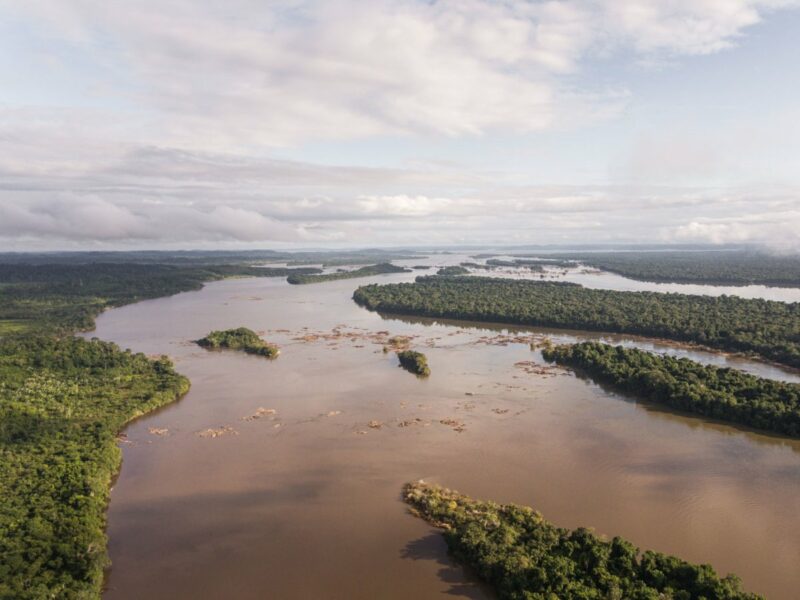Canadian mining company Belo Sun has filed a lawsuit against community leaders and environmental rights groups for allegedly invading and occupying company-owned land, in a case the defendants are calling an attempt to criminalize environmental defenders in the region.
According to some lawyers and campaigners not involved in the case, the lawsuit lacks accuracy and Belo Sun is engaging in a pattern of legal intimidation through this case and previous actions against those who challenge their operations in the Brazilian Amazon. The company denies these allegations.
Following a series of protests by landless workers and Indigenous groups against its plans to expand mining operations, the mining company announced the lawsuit on Oct. 17.
The contentious mine, known as Volta Grande, would cover more than 2,400 hectares (5,930 acres) in the Volta Grande do Xingu region, making it the biggest open-pit mining project in Latin America. While some locals favor the mine for the potential jobs and investment it could bring, others says its plans to extract 5 tons of gold per year for at least 12 years near the Xingu River could result in catastrophic damage to the watershed. This would pose a threat to the region’s rich biodiversity and Indigenous communities that would suffer from the loss of fish, food and clean water.
According to a report, the tailings dam, which will be about 13 stories high, runs an “unacceptably high risk” of rupture that could flood the area with up to 9 million cubic meters (2.4 billion gallons) of toxic waste and contaminate the already fragile Amazon ecosystem.
A fraught protest
For the last two years, landless peasants have accused Brazil’s federal agency for agrarian reform (INCRA) of illegally giving away 24 square kilometers (9.2 square miles) of public land reserved for agrarian reform to Belo Sun for mining exploration. Landless peasants are a group of rural workers or fishers who seek land for settlements or small-scale farming under Brazil’s land reform plans. According to an investigation, the deal between INCRA and Belo Sun involved an exchange of trucks, laptop computers, GPS devices and an undisclosed percentage of the company’s mining revenue. The legality of this deal has since been challenged in a lawsuit, but a judge’s decision has yet to be made.
INCRA did not respond to Mongabay’s requests for comment by the time of publication.
For five days in June 2022, around a hundred landless peasants from the surrounding region, together with the support of Indigenous and local communities, protested against INCRA and Belo Sun’s agreement. The groups in Volta Grande do Xingu created an encampment inside the Ressaca settlement – an area of land that was created by INCRA in 1999 to house 600 families of rural workers across 29 lots between the municipalities of Altamira and Senador José Porfírio — which is included in the deal. Belo Sun does not recognize that the land belongs to the rural workers who built the encampment and regularly refers to them as “invaders” and “land squatters” in its lawsuit.
According to the company’s petition, the groups built homes on the contested site, cut up and detoured the company’s water pipes to the camp, used an electricity transformer to redivert electricity, contributed to deforestation and created a violent atmosphere in the region.
In retaliation, Belo Sun sued 40 local residents and members from various social and environmental organizations, including the Brazil director of Amazon Watch, the Amazon program director of International Rivers and the general coordinator of the Xingu Vivo Para Sempre Movement, a prominent group protesting against the mine. The allegations included the “invasion and illegal occupation” of company-owned land or their direct support of the “occupation.” The company also accuses NGOs of disseminating false or distorted information, including dubious studies, on the impact of its mining project.
Mongabay reached out to Belo Sun for a comment but received no response. The defendants deny many of the allegations against them.
“Belo Sun’s intention with the criminal complaint against us is to intimidate us,” says Antônia Melo da Silva, the general coordinator of the Xingu Vivo Para Sempre Movement, named in the lawsuit. She also denies her presence at the camp. “But it is Belo Sun that must be expelled from the territory. The Volta Grande do Xingu cannot stand any development that destroys the environment and the lives of its peoples.”
In 2022, Belo Sun filed a lawsuit against a university professor who spoke out against the risks that the Volta Grande project would bring to the Xingu River and surrounding communities. The Articulation of Indigenous Peoples of Brazil also received an extrajudicial notice from the company after the publication of their report, arguing Belo Sun did not properly consult communities in the region.
“People who live in the area where the mining company wants to set up the project are always harassed and watched by Belo Sun’s armed security guards,” says Melo da Silva. “They pull out guns, chase our team and provoke allied groups against us.”
Following the lawsuit, 26 human and environmental rights groups, including the Pará Society for the Defense of Human Rights and the Brazilian Association of Jurists for Democracy, published a letter of repudiation denouncing the lawsuit as an act to stop residents in the area from making claims to their own territory and defending their right to a healthy environment.
“This is an attempt to silence families and leaders who are on the frontline of the struggle for agrarian reform, and to intimidate national and international networks that monitor and denounce the destruction caused by large enterprises and companies in Volta Grande do Xingu,” they wrote in the letter.
A legal tactic or defense?
Marcella Ribeiro, a human and environmental rights lawyer for the Interamerican Association for Environmental Defense, who is not involved in the lawsuit, says these sorts of tactics are a way for companies to use judicial power to obstruct the work of defenders and persuade them to abandon their mission of defending rights.
According to Ribeiro, the criminal complaint filed by Belo Sun failed to identify and connect specific criminal acts to each one of the more than 30 people denounced. “The lack of accuracy in Belo Sun’s demand raises questions about its intentions,” she says.
She adds that the accusations are “imprecise” and refer to a series of protests that local police have already stated were not unlawful.
In recent years, Ribeiro has seen an “exponential and worrying increase” in the number of lawsuits filed by extractive companies against environmental and human rights defenders, particularly in Latin America.
“In most cases, these are not stand-alone acts: They are part of a strategy for spreading fear and weakening civil society organizations that work in defense of human rights,” she tells Mongabay. Such complaints could create tensions in the territory and have a direct impact on how the defenders see themselves and how they are seen by others in their communities and regions.
Belo Sun has requested reparations for the damages caused by the protesters as well as the disclosure of the banking details of NGOs, protesters and their representatives; the blocking of their accounts; and the arrests of those involved. Ribeiro says any charges will result in huge personal and financial costs for those mentioned in the lawsuit.
According to Belo Sun’s petition, the company “is not persecuting or threatening people in the Ressaca settlement and the region, as the social movements and NGOs would have [the judge] believe.” The petition says the company is acting only to preserve its rights, the rights of the settlers of the Ressaca Settlement Project and the region and stop criminal activity that makes it impossible to agree to the justification of land.
Xingu Vivo Para Sempre Movement and the Alliance of Volta Grande do Xingu lawyer, Diogo Cabral, says the case could take years to process. When questioned about the likelihood of any charges being made, he says there is little justification for criminal prosecution because the information presented by the company is inadequate.
The signatories of the repudiation letter say the lawyers of those accused have started to provide preliminary defenses in court and plan to present a complaint to the Ministry of Human Rights and Citizenship, the Inter-American Commission on Human Rights and the U.N. to denounce Belo Sun’s actions.
In April this year, more than 50 civil society organizations, including Amazon Watch, submitted a series of reports to the U.N. highlighting dozens of instances of corporate rights violations by Canadian companies in Latin America. Volta Grande was one of 37 Canadian projects mentioned due to its explicit violation of human and environmental rights in Brazil. According to the authors, Canada has failed to implement adequate or effective regulation, oversight and accountability.
“This initiative by Belo Sun and other companies in Brazil and Latin America to criminalize defenders is a strategy to weaken resistance and fragment communities,” Gabriela Sarmet, a campaign adviser for Amazon Watch, tells Mongabay. “This is a very classic practice at this early stage of mining projects, in order to be able to destabilize any form of confrontation with these extractive projects.”













